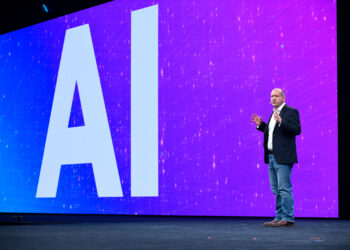As we move into 2025, the recruitment landscape continues to shift, influenced by technological advancements, changing worker preferences, and ongoing economic pressures, both here in the UK and across international markets.
Marc Sumner has identified the top six trends likely to impact your hiring throughout 2025.
1. Hybrid and Remote Work: A Non-Negotiable Standard
The demand for flexible working options has only increased in recent years, and this trend is expected to remain strong in 2025. In fact, many workers now view hybrid or fully remote roles as essential. Research from Gartner reveals that 58% of employees prefer hybrid arrangements, while 35% are drawn to entirely remote positions. The battle for top talent in the IT channel is no longer just about salary – it’s about flexibility. Companies that still insist on full-time office work are alienating a huge chunk of their potential workforce. The best candidates are dictating the terms, and businesses that don’t adapt will simply lose out.
2. Talent Shortages and the Skills Gap: A Continued Struggle
85% of Channel companies struggle to find talent with the technical skills required for digital transformation. This shortage is expected to worsen throughout 2025. Every business in the IT channel is talking about digital transformation, but the reality is that they don’t have the talent to make it happen at scale. The real challenge isn’t just finding people; it’s identifying those who can upskill rapidly. Businesses need to invest in training rather than expecting the perfect candidate to land on their doorstep.
3. Harnessing AI for Recruitment Efficiency – but It’s Causing Issues
Artificial intelligence (AI) is playing an increasingly important role in recruitment. AI-driven tools help companies streamline their hiring processes, from screening resumes to matching candidates with job descriptions. But the candidate experience is poor, with candidates being rejected automatically.
AI should be a tool to enhance recruitment, not replace human judgment. Some candidates I speak to are getting frustrated about being automatically rejected because they haven’t got perfect backgrounds. Too many businesses are relying on AI-driven screening that weeds out great candidates just because their CV doesn’t fit the algorithm. Recruitment is still about people, and businesses that rely solely on tech will miss out on top talent. Sometimes, the best candidate hasn’t got the best CV.
4. Diversity, Equity, and Inclusion: Central to Employer Branding
Diversity, equity, and inclusion (DEI) are top priorities for organisations aiming to create workplaces that attract top talent. A significant 76% of job seekers say that a diverse workforce is an important factor when evaluating job offers.
Every business now has a DEI statement on their website, but candidates see straight through token efforts. They want real action, diverse leadership teams, and clear progression opportunities. If companies don’t take DEI seriously, they’ll lose top talent to competitors who do.
5. The Recruitment Challenge: Longer Hiring Timelines
As the demand for skilled talent intensifies, hiring processes are taking longer. The average time to fill a position has risen significantly, with roles now taking an average of 42 days to fill, up from 33 days in 2019. This extended hiring timeline increases the risk of losing top candidates to competitors who move faster.
Time kills deals, and it kills hires too. The best candidates aren’t waiting six weeks for an offer. If your hiring process drags on, you can be sure your competitors are moving faster and snapping up top talent while you’re still scheduling second-round interviews.”
6. Candidate Experience and Retention
Today’s candidates are placing more value on their hiring experience. A poor experience can deter them from accepting an offer – even if they were initially interested. Research shows that 83% of candidates would reconsider a job offer if they encountered a poor hiring experience.
Recruitment isn’t just about attracting talent; it’s about selling your business to candidates. A frustrating application process, poor communication, or slow feedback will cost you hires. Candidates today expect a consumer-level experience when applying for jobs. If they don’t get it, they’ll walk.
Final Thoughts
2025 is set to be another challenging year for recruitment in the IT Channel, but the companies that embrace flexibility, speed, AI with human oversight, and genuine DEI initiatives will do well in this market.
The key takeaway? If you don’t adapt, you’ll lose out.
Good luck with your hiring.















